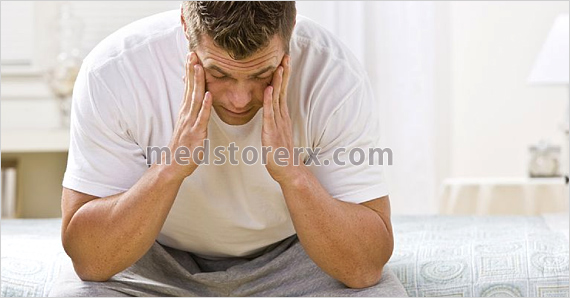Male menopause is also called as Andropause, Manopause, or testosterone deficiency. Testosterone is a male hormone that is responsible for growth and development, and optimal reproductive function. Male sexual features like muscle mass, deep voices, body and facial hair patterns are characterized by this hormone. The main function of Testosterone is production of sperm and maintaining its motility and count.
 As the age progresses, the Testosterone level gradually decreases, because of which the sperm production is greatly reduced. Eventually, men experience certain physical and psychological signs or symptoms. According to medical experts, Andropause is a natural ageing process and men lose 10% of Testosterone every decade and by the age of 40, the level is significantly reduced. Nearly, 30% of men between the age of 45 and 50 experience the signs and symptoms of Manopause.
As the age progresses, the Testosterone level gradually decreases, because of which the sperm production is greatly reduced. Eventually, men experience certain physical and psychological signs or symptoms. According to medical experts, Andropause is a natural ageing process and men lose 10% of Testosterone every decade and by the age of 40, the level is significantly reduced. Nearly, 30% of men between the age of 45 and 50 experience the signs and symptoms of Manopause.
What Are The Causes Of Male Menopause?
The primary cause behind Andropause is decrement in Testosterone level. Ageing is another potential factor, because men tend to produce less testosterone as the age progresses. Simultaneously, men produce more SHBG (sex hormone binding globulin) that is actually responsible for Andropause. Physical and psychological factors such as diabetes, cardiovascular and neurological disorders, stress, depression and bad effects of certain medications also affect Testosterone production. Unhealthy lifestyle choices like poor eating habits, lack of physical exercise, smoking, alcoholism and illicit use of drugs can greatly affect the secretion of male sexual hormone.
Signs And Symptoms Of Andropause –
The signs and symptoms of male menopause vary from individual to individual. They often depend on the person’s age, susceptibility, physical or medical condition, etc. General clinical features of men going through menopause are as follows –
• Loss Of Libido (Low Sexual Desire)
• Erectile Dysfunction (ED) – difficulty in getting rigid erection
• Fatigue/Generalized Weakness
• Mood Swings Or Irritability
• Depression
• Lack Of Vitality In Performing Daily Routines
• Loss Of Muscle Mass And Strength
• Hot Flashes
• Obesity
The complications associated with male menopause are increased risk of developing heart disease and osteoporosis. If untreated, Andropause can really hamper the overall health.
Many times, men are asymptomatic in initial stages. It is better to consult your doctor if you experience the above-mentioned symptoms. The physician may examine you physically and advise you to undergo blood test to assess the Testosterone level.
Medical Management Of Andropause –
Hormonal Replacement Therapy (HRT) is the first choice of treatment of male menopause. Replacing testosterone in blood provides great relief from the signs and symptoms and improves the quality of life. At the same time, men are advised to follow healthy lifestyle – such as eating a well-balanced diet, exercising regularly, managing stress and staying away from bad habits.
Artificial Testosterone is available in following preparations –
• Testosterone gel – It is usually applied to the skin, especially on the arm.
• Skin patches – A medicated skin patch is applied on the skin, which slowly releases Testosterone.
• Oral capsules – They are taken orally twice a day after meals. They are contraindicated in men with severe liver/kidney disease, high calcium in blood and serious heart complications.
• Injectable – It involves Testosterone injections that are given intramuscularly every two to four weeks.
Men with breast or prostate cancer should not use synthetic Testosterone. In addition, men may suffer from unwanted side effects during the course of therapy. Therefore, it is mandatory to take HRT under the supervision of the physician.


 Cart : 0 items - $0.00
Cart : 0 items - $0.00










